Comparison Worksheets for Ages 3-6
19 filtered results
-
From - To
Introduce your little learners to the world of comparison with our engaging and educational worksheets designed for ages 3-6. At Kids Academy, we offer a variety of printable activities that help children develop crucial math skills by comparing sizes, quantities, and objects. These fun exercises are perfect for early childhood education, enhancing critical thinking and foundational math abilities. Crafted by experts, our comparison worksheets make learning interactive and enjoyable, providing endless practice opportunities. Foster your child's curiosity and academic growth today with our comprehensive collection, tailored specifically for young minds eager to explore and learn.
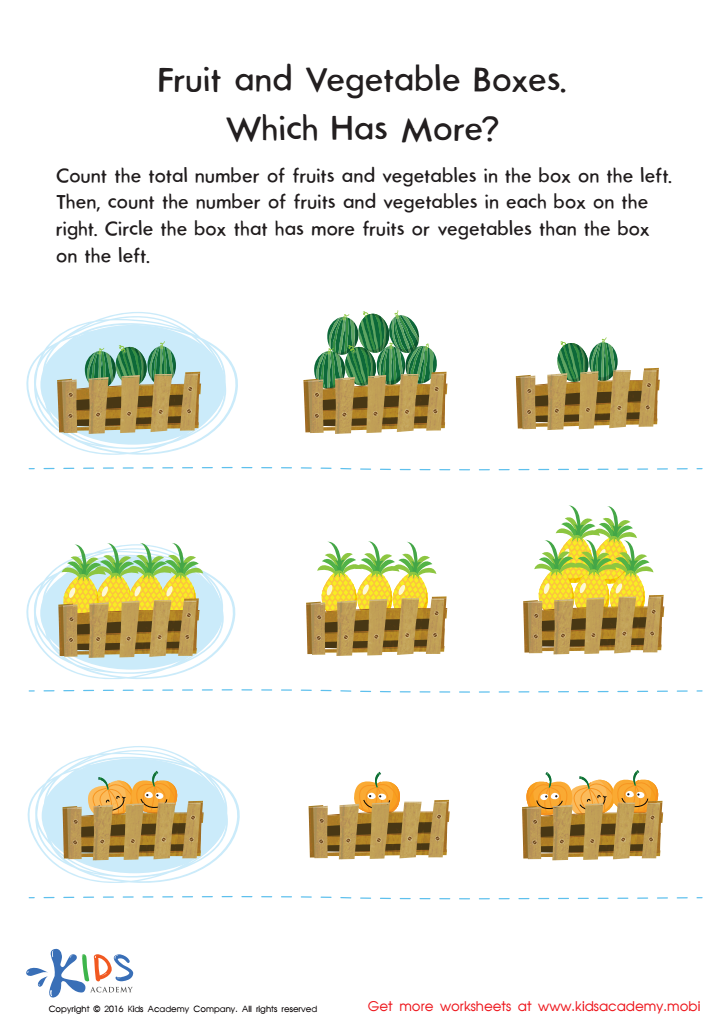

Which Has More? Size Worksheet
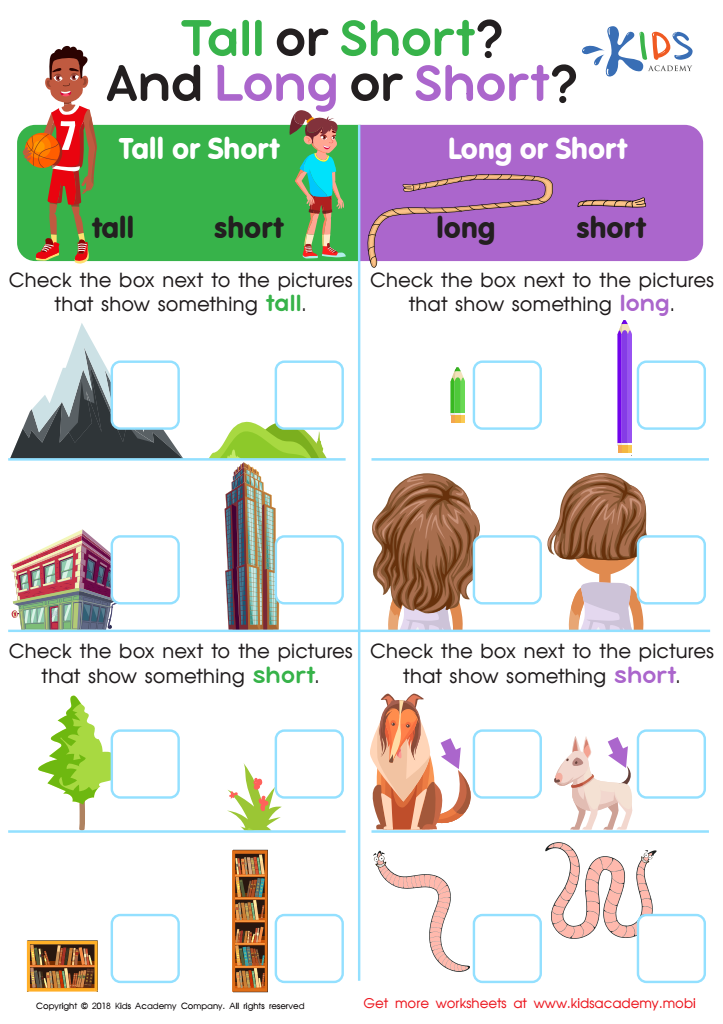

Tall or Short and Long or Short? Worksheet
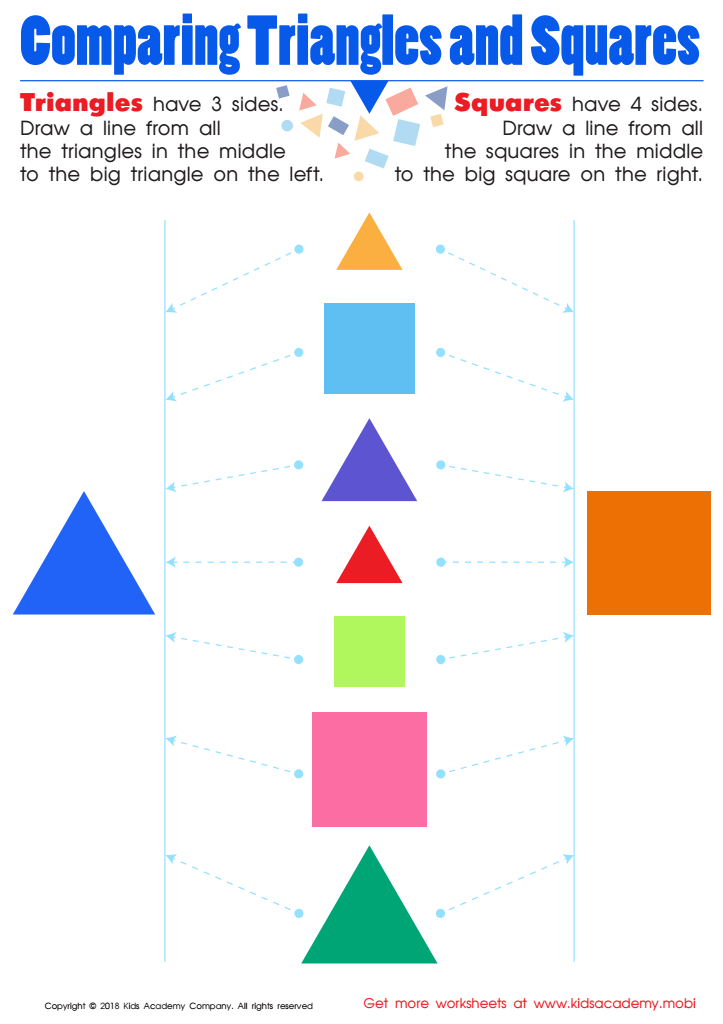

Comparing Triangles Squares Worksheet
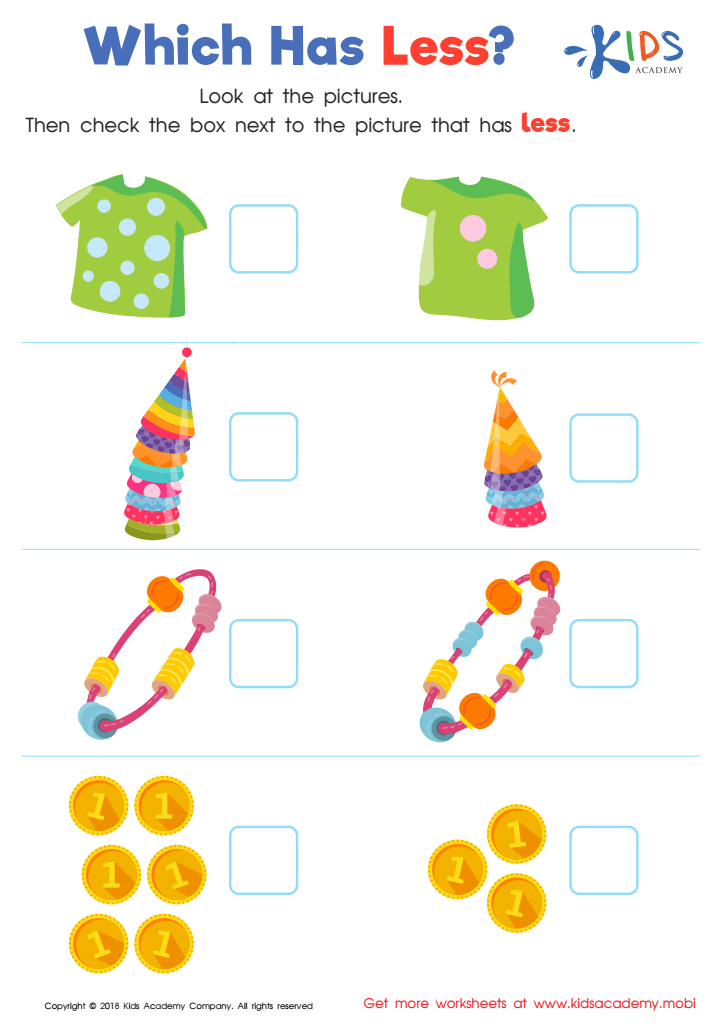

Which Has Less? Worksheet
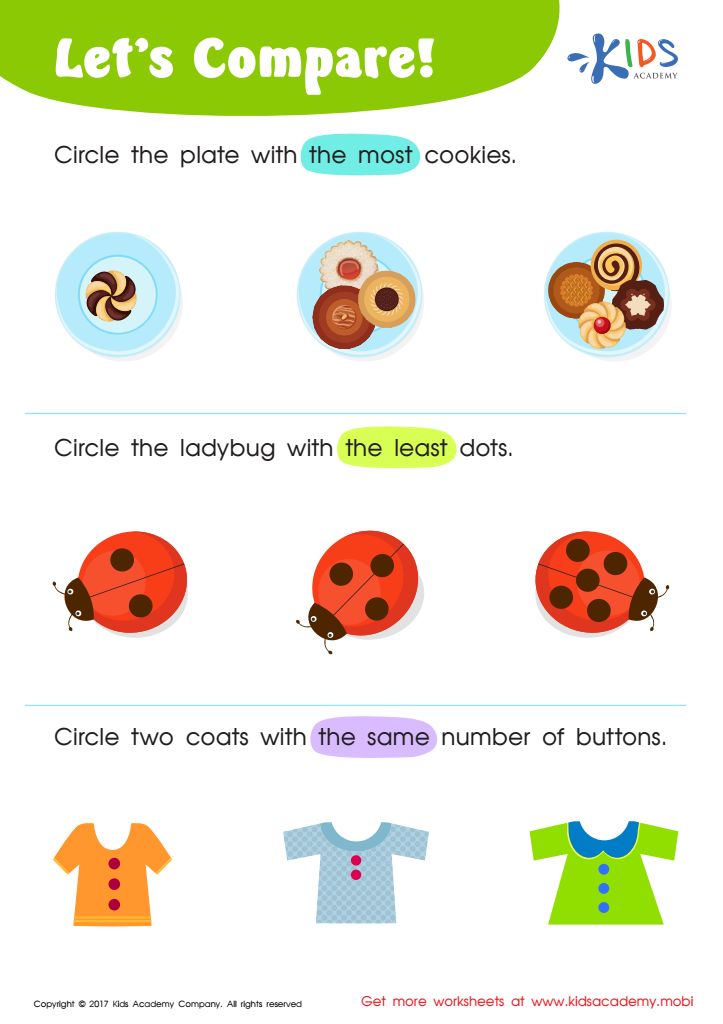

Matching: Classifying Toys by Size Worksheet


Matching: Classifying Toys by Size Worksheet
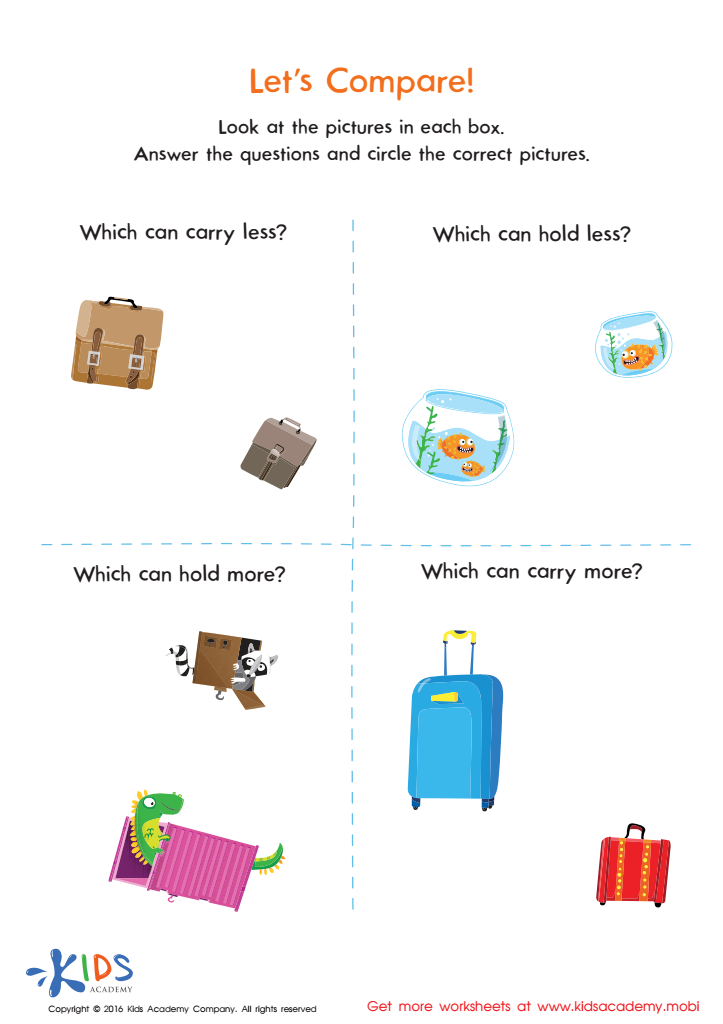

Let's Compare Worksheet: Big or Small
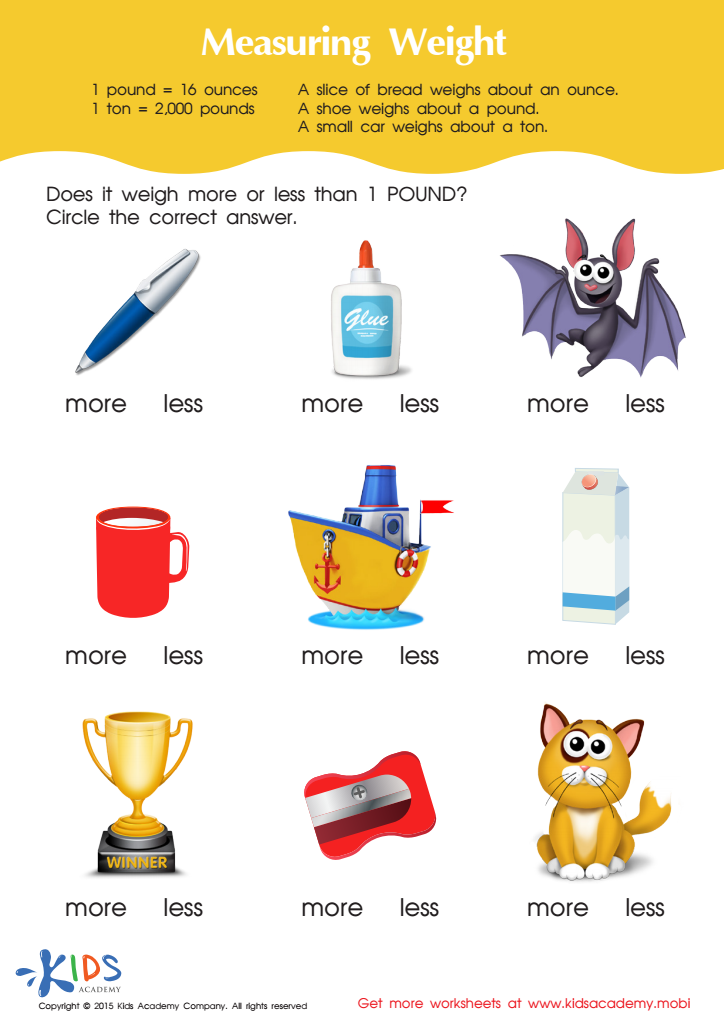

Measuring weight in pounds Worksheet
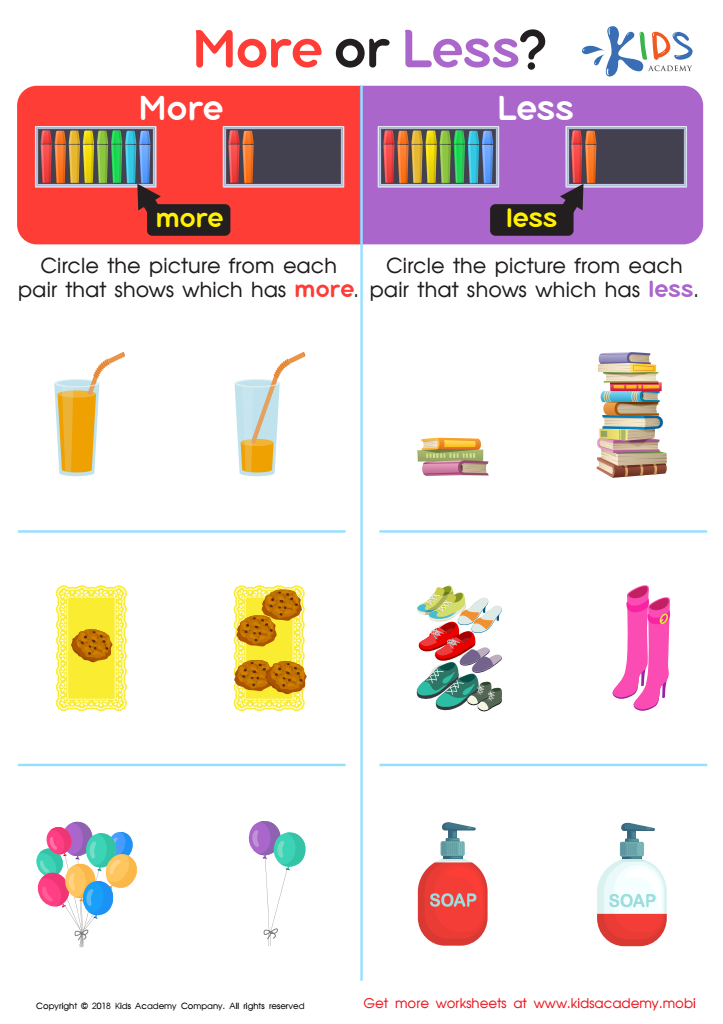

More or Less? Worksheet
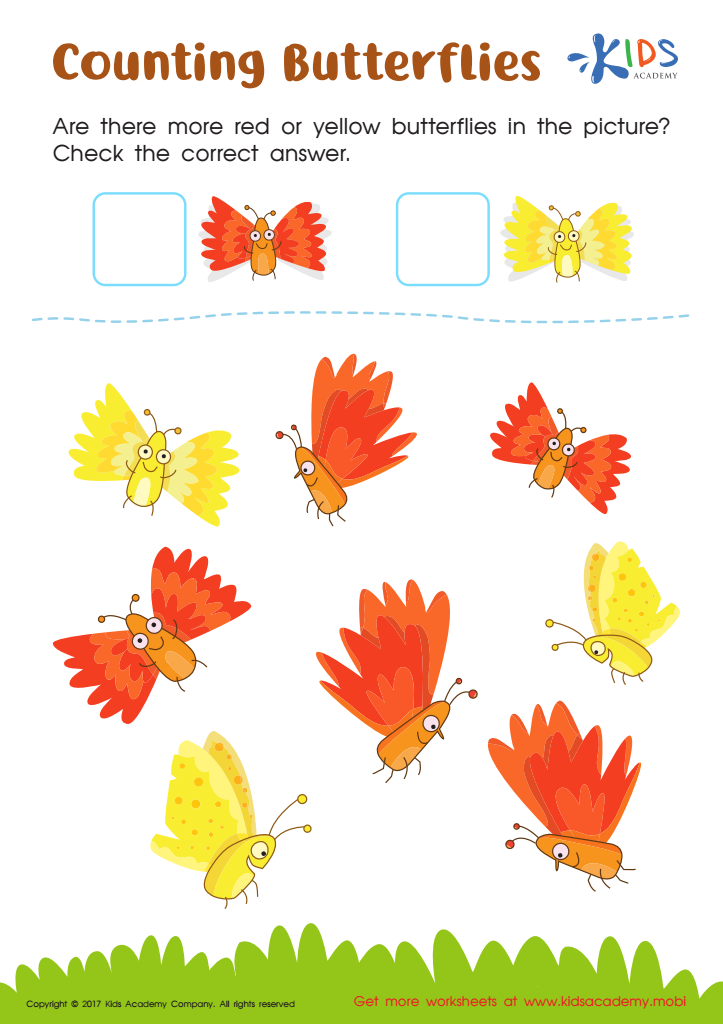

Counting Butterflies Worksheet
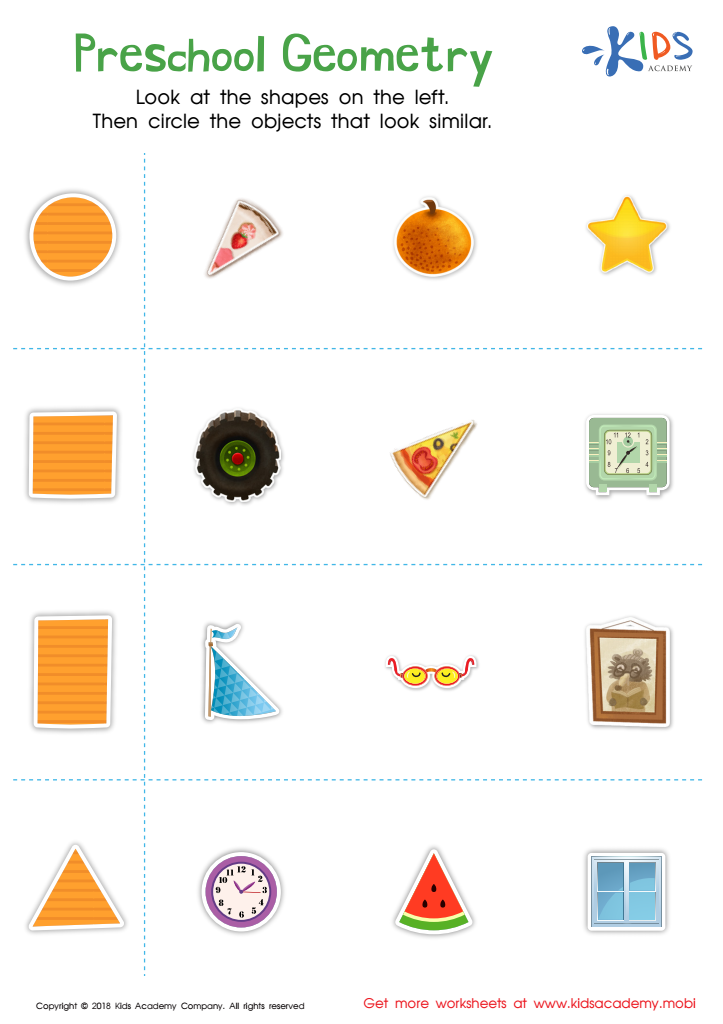

Preschool Geometry Worksheet
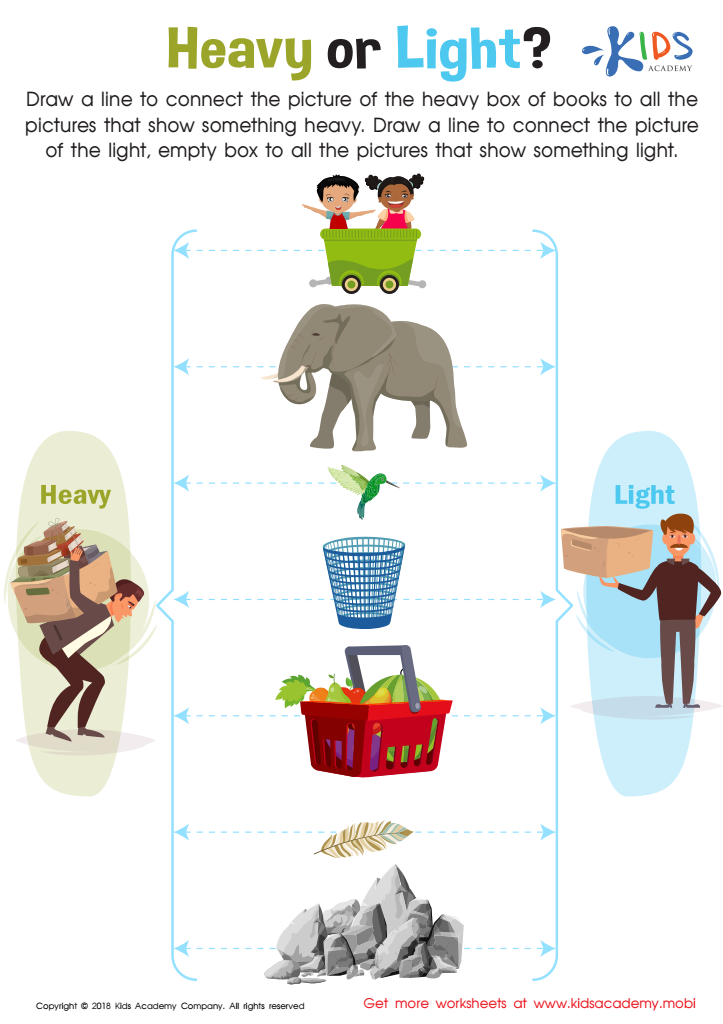

Heavy or Light? Worksheet
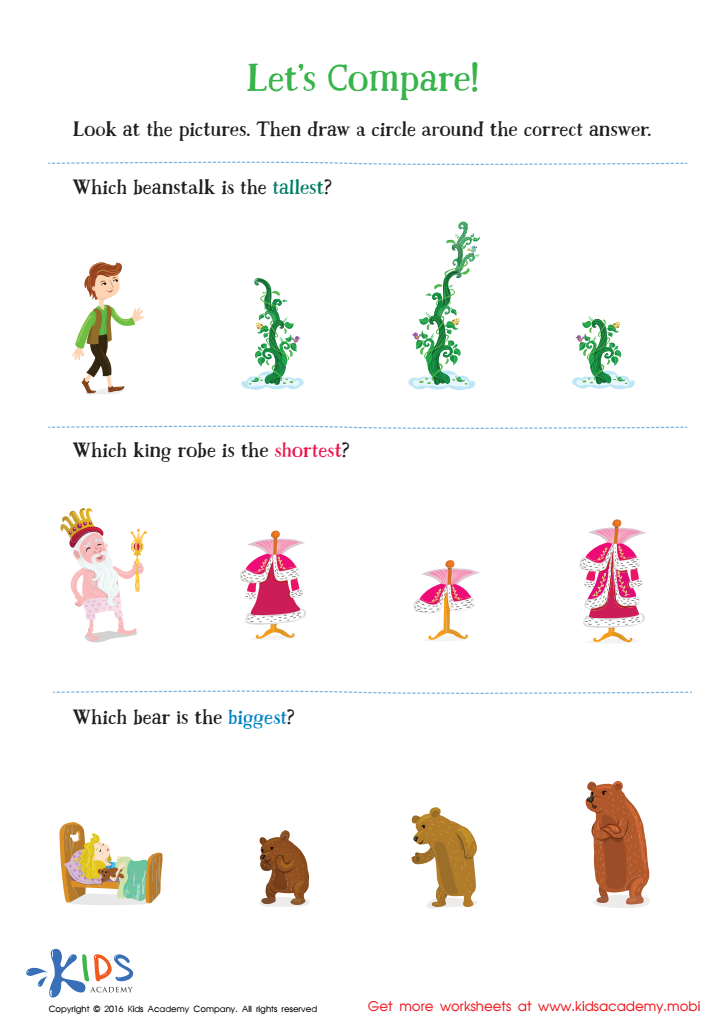

Fairy Tale Worksheet: Let's Compare
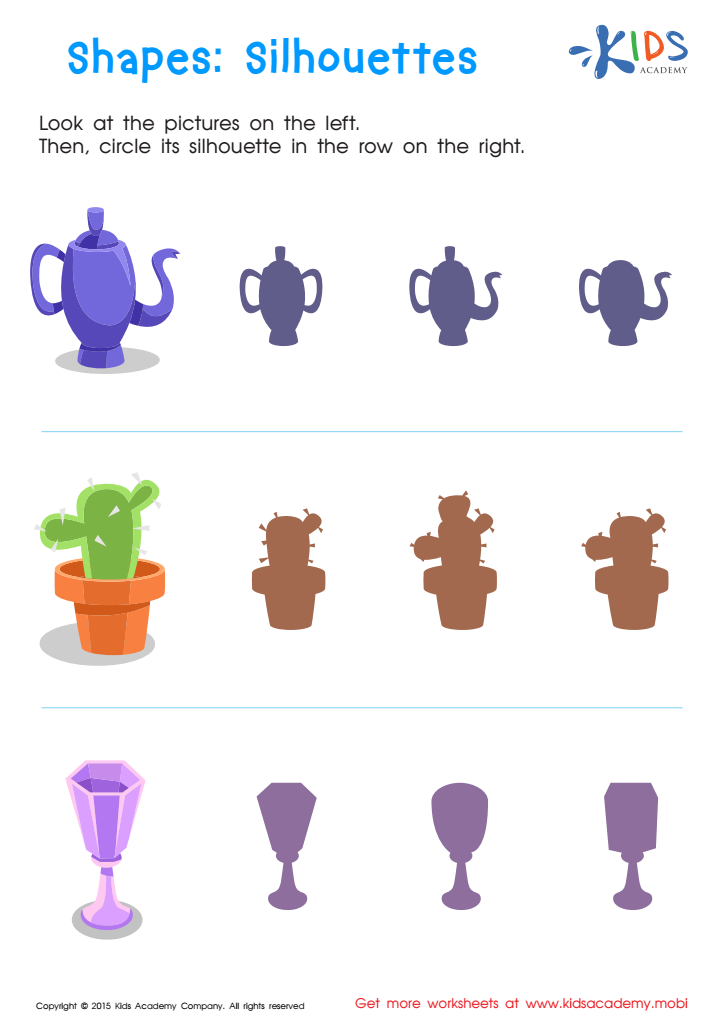

Silhouettes – Shapes Worksheet
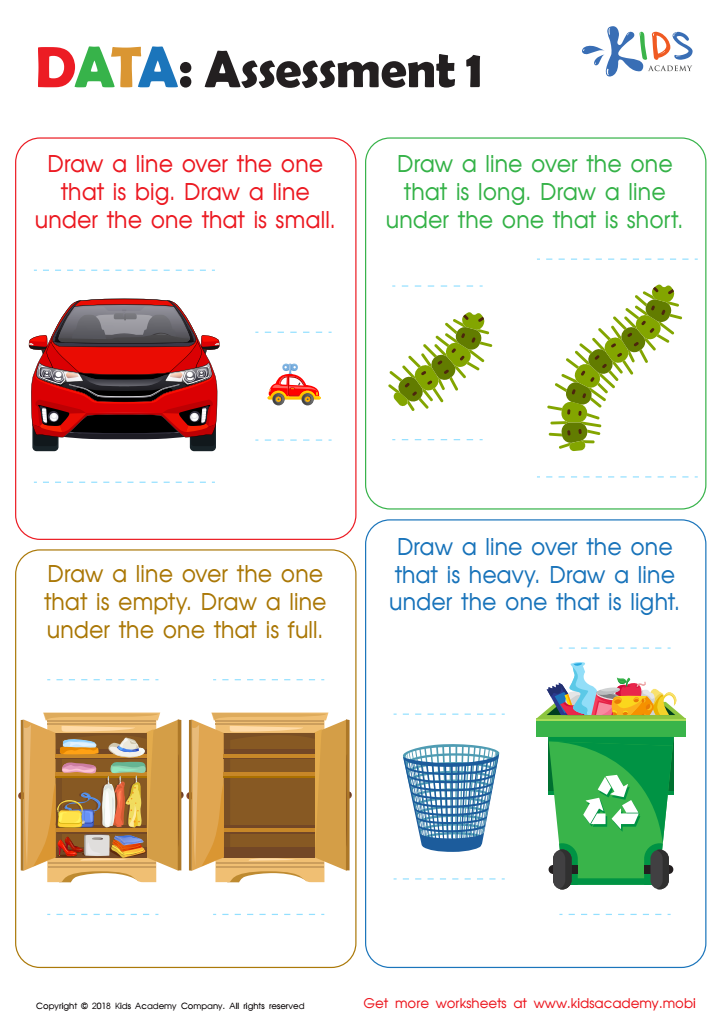

Data: Assessment 1 Worksheet
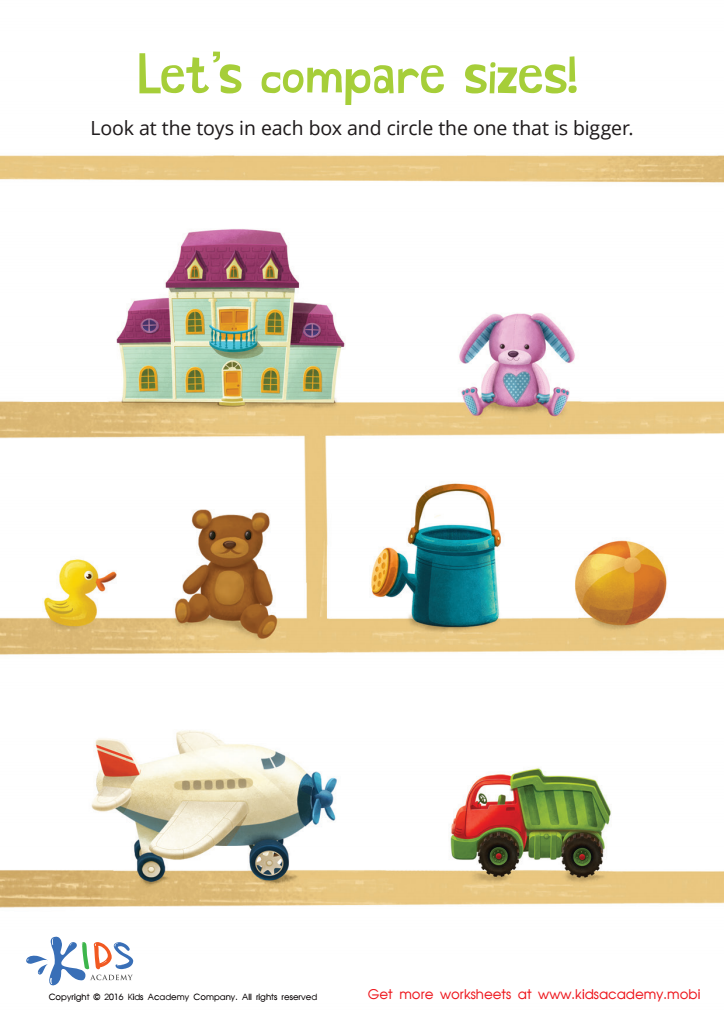

Classifying by Size Sorting Worksheet
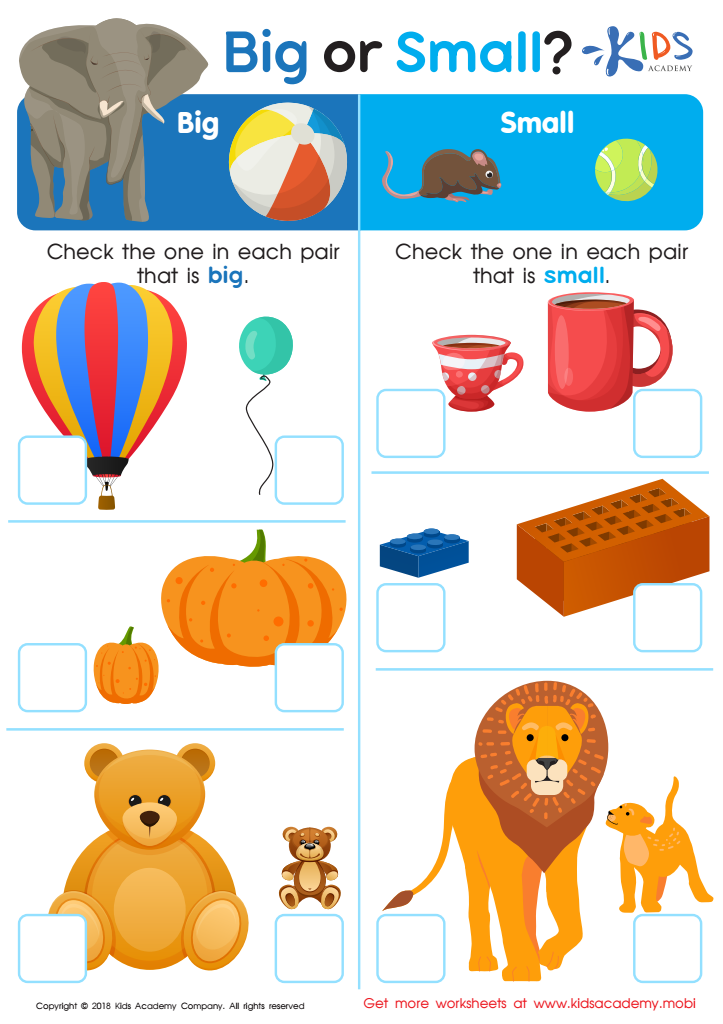

Big or Small? Worksheet
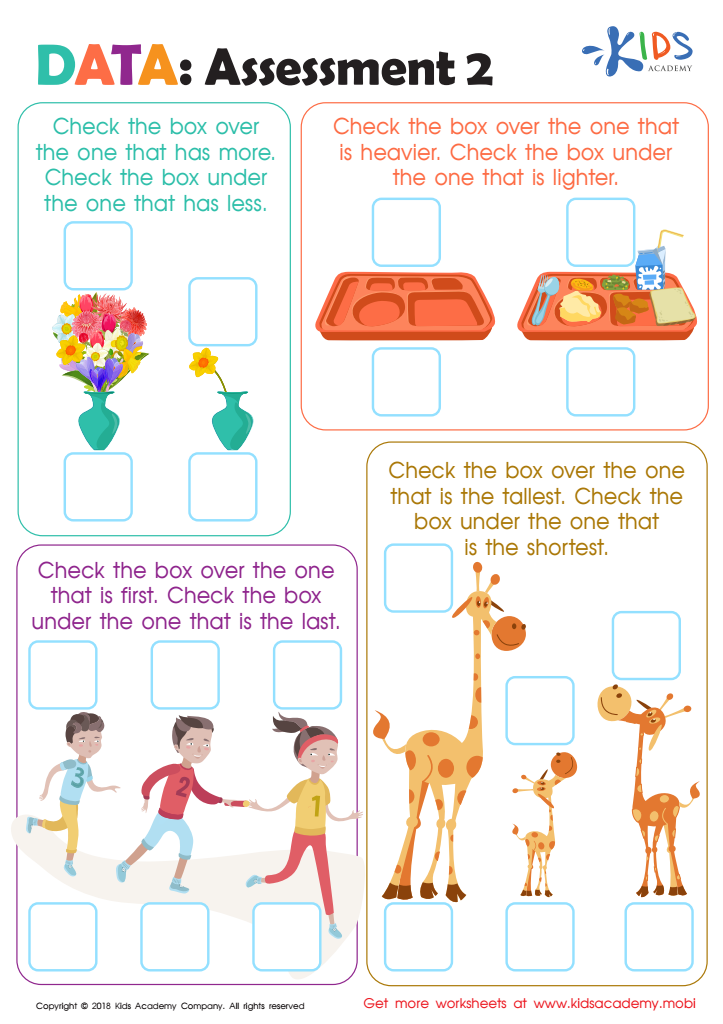

Data: Assessment 2 Worksheet
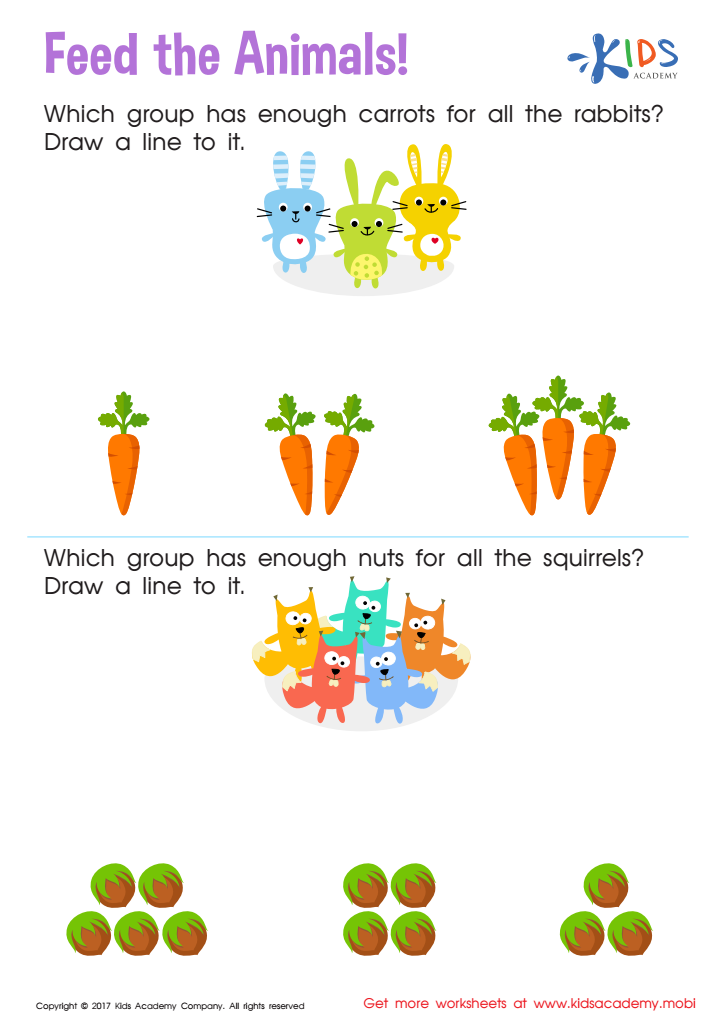

Count and Match: Feed the Animals Worksheet
Understanding comparison is vital for young children, ages 3-6, as it lays the foundation for their cognitive development and critical thinking skills. When parents and teachers introduce comparison concepts, they're helping children to recognize differences and similarities between objects, ideas, and experiences. This skill is crucial for math development as it will later support the understanding of bigger versus smaller, more versus fewer, and other quantitative relationships.
Additionally, learning to compare enhances a child's language skills. Describing objects and explaining reasoning behind comparisons bolsters vocabulary and encourages the use of descriptive language. For example, when a child is asked to compare a big ball to a small ball, they are practicing adjectives, size, and potentially even problem-solving if they have to choose the right tool for the task involving the balls.
Moreover, comparison aids in social development. By understanding comparisons, children can better articulate their preferences and understand others'. This skill plays an essential role in sharing, making choices, and empathy, as kids recognize differences and similarities between themselves and their peers.
In summary, incorporating comparison in early learning supports mathematical thinking, language development, and social understanding. Parents and teachers should emphasize comparison for holistic developmental purposes, enabling children to interact more effectively with their world.

 Assign to My Students
Assign to My Students
















